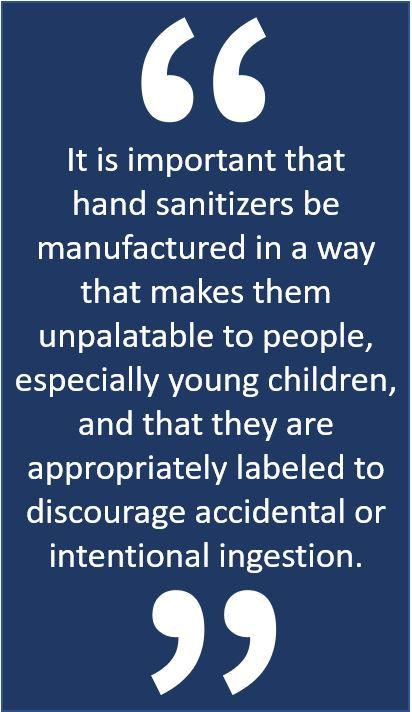- Clinical Technology
- Adult Immunization
- Hepatology
- Pediatric Immunization
- Screening
- Psychiatry
- Allergy
- Women's Health
- Cardiology
- Pediatrics
- Dermatology
- Endocrinology
- Pain Management
- Gastroenterology
- Infectious Disease
- Obesity Medicine
- Rheumatology
- Nephrology
- Neurology
- Pulmonology
FDA Cautions on Hand Sanitizer Safety: Poor Labeling, Fraudulent Claims
FDA today voiced concern over alcohol-based hand sanitizer products being produced by non-traditional manufacturers to augment supply during the COVID-19 pandemic.

More than 1500 manufacturers have registered with the US Food and Drug Administration (FDA) to produce hand sanitizer--part of a national effort to maintain availability of the product during the COVID-19 pandemic.
Today the Agency issued an update on that effort that included concerns about products being sold that do not conform to original FDA guidance on manufacturing and products being marketed with unproven claims.
“We appreciate industry’s willingness to help supply alcohol-based hand sanitizer to the market to meet the increasing demand for these products and are grateful for their efforts,” said FDA Commissioner Stephen M. Hahn, MD, in the FDA press release. “With this increased supply comes our continued mission to ensure safety of these products. It is important that hand sanitizers be manufactured in a way that makes them unpalatable to people, especially young children, and that they are appropriately labeled to discourage accidental or intentional ingestion. Additionally, hand sanitizers are not proven to treat COVID-19, and like other products meant for external use, are not for ingestion, inhalation, or intravenous use.”
No discussion on denaturants
Common in feedback and among questions from industry and members of congress since FDA issued the what date and need a link guidance has been the topic of using denatured alcohol in these products. Denaturants render the alcohol more bitter and less appealing to ingest, particularly for young children and the requirement that they be added now is consistent with pre-COVID-19 policy for alcohol-based hand sanitizers. While FDA recognizes that including this step may add cost to the manufacturing process, it is not a topic open for negotiation, according to the release.
Citing analysis of government data, the FDA found that calls to the National Poison Data system last month related to hand sanitizer increased by 79% vs March 2019. According to the FDA news release, most of the calls were for unintentional exposure in children aged 5 years and younger. Calls to poison control centers regarding exposure to hand sanitizer are not uncommon; adverse events can be fatal and only a small amount can be potentially lethal in a child.
Labeling absent, marketing fraudulent
A disturbing incident involved a 13-year-old who ingested hand sanitizer packaged in a liquor bottle from a distiller, according to the news release. The product was not denatured, nor did it carry the FDA-required Drug Facts Label with the well-known warnings to keep the product out of children’s reach, supervise use by young children, and contact a poison center if the product is accidentally ingested.
In mid-April the Agency issued its first warning letter for a hand sanitizer product marketed with unproven claims related to COVID-19, ie, that it offered extended protection and would resist multiple hand washes.
Anyone with questions for the FDA regarding hand sanitizers should email COVID-19-Hand-Sanitizers@fda.hhs.gov.
No Rx Required for COVID-19 Vaccination But ACIP Calls for Better Informed Consent Process
September 22nd 2025The ACIP on September 19 narrowly voted against requiring a prescription to get the shot but urged more detailed discussion of vaccine risks during shared decision making conversations.
